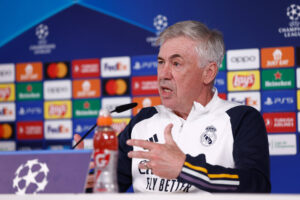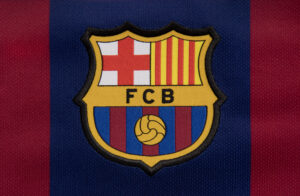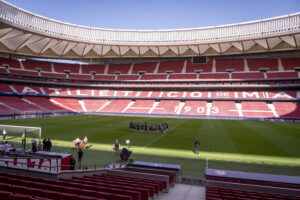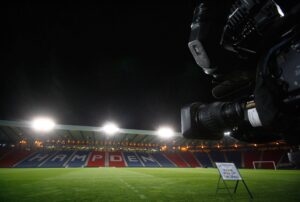Football finances control everything in the modern game, and that includes how success is evaluated. Whilst football remains the fans game, something that has been brought to the fore once again following the European Super League debacle, the days of trophies being the only measure of success seem to be long gone.
Success in the Modern Game is Guided by Football Finances
Financial Instability
There is no avoiding the fact that the amount of money in football is now at incredibly high levels, and with that comes the perilous issue for many clubs trying to avoid insolvency. Ask fans of Bury, Bolton Wanderers, Wigan Athletic and Leyton Orient about the fear of losing their clubs forever and they know first hand that it is a devastating feeling and one that is borne from financial strife.
Bury were victims of ITV Digital wanting to get in on the riches of football rights but they eventually collapsed, resulting in administration. In 2019, owner Steve Dale had a chance to sell the football club but chose to try and wait to get more money, and Bury were effectively destroyed by money and greed – no different to what has been driving attempts to create a breakaway European Super League. If finances are miss managed in any business, there is going to be pain along the way and sadly that comes all too often at the expense of the fans who have spent their lives following their club.
Football has become more about financial survival than success on the pitch, so it would make sense to assume that clubs who are successful on the pitch are well run financially off it.
Debts, Debts and More Debts – Manchester United
Manchester United might not be winning as many trophies as they were under Sir Alex Ferguson, but they have still had success in the Europa League and League Cup under Jose Mourinho. However, one of the worlds biggest sporting brands are run on what is pretty much fresh air. According to The Athletic, United’s net debt grew to £455.5 million, which was partly due to a huge reduction in matchday sales due to the coronavirus pandemic with revenue at only £1.5 million for the last three months of 2020.
Broadcasting revenue also fell but ESPN reports that the club still have a £90 million cash reserve. It does not need a skilled mathematician to realise that this is not a healthy situation, yet the club in recent years has paid £80 million for defender Harry Maguire. If football finances control everything, at what point does debt become a problem?
The United fans have never accepted the Glazer family as the club’s owners and one reason for this is that the word ‘own’ does not ring true.
Leveraged Buyout
The Glazers bought the Old Trafford club for £790 million but it was all debt. Debt that would be paid back from any future profits that the club then make, so in essence, the clubs’ profits just keep paying an ever perpetuating debt for the ‘owners’ who are happy as long as Champions League qualification is secured. The reason being that the global reach of the Champions League means more revenue, more profits and more opportunity to reduce their own debt.
Burnley – Success is Staying in the Premier League
Burnley have been in the top flight for the past five seasons and manager Sean Dyche has done an incredible job on limited resources, even taking the club into Europe in the 2018/19 Europa League second qualifying round through a seventh-placed position in the league. That on-field success came with consequences and the club had a poor to start to the Premier League season as they didn’t have the strength in depth that their richer rivals can produce without blinking. Elimination from Europe saw their league form improve and safety assured once more.
To compete in the league is one thing, but to be able to convert that into trophies is another altogether. Burnley have opted to play weakened sides when it comes to cup competitions and the answer as to why they do this is again finances. If they went all out and won the FA Cup they would pick up £1.8 million in prize money. In the 2019/20 season, they earned £19.5 million for finishing tenth. Keeping players fit and available gives Dyche and his team a better chance of staying in the league and the income gained for the league finish is enough to keep the club financially stable. For Burnley that is success and with financial survival essential, Burnley and many others’ approach is understandable.
Tottenham Hotspur – Daniel Levy and the Financial Stability Model
Daniel Levy and ENIC often draw debate about how they run the football club on and off the pitch. Taking control of the North London club in 2001, the investment company owned by Joe Lewis looked to stabilise a business that had a turbulent time financially through the 1990s.
Whilst the global pandemic has impacted all clubs across the globe, Spurs still gained income of £391.9 million, according to Football.london.
Levy is known as being a tough negotiator and has presided over the building of a world-class training facility and stadium in his 20 years at the helm. In the last ten years, the club’s net spend has been £168.02 million, which is lower than the likes of Liverpool, Manchester United and Manchester City, but the difference is that in those ten years those three clubs, as well as Chelsea and Arsenal, have all won silverware. In 20 years under ENIC, Tottenham have won just one trophy – 13 years ago.
For Spurs fans, there is a need to try and understand that financial stability off the pitch does not guarantee success on the pitch if you benchmark success by silverware and not financial income.
Take the 2021 League Cup final. Whilst Tottenham lost, had they won they would have gained silverware but prize money is just £100,000, which wouldn’t even go halfway to paying on loan Gareth Bale’s wages. To qualify for the Champions League group stages would deliver £15.25 million in income, so on that basis clubs owners are going to look for the highest income as being the priority.
Finishing in the top four is now the target at the start of every season but how many of these clubs sit down and start the season with winning the title as their primary objective? Maybe two or three realistically. A top-four finish has become a success because of the money it generates rather than the prestige silverware brings. The attitude has become that football finances control everything.
Leicester City – Bringing Back the Magic
There are however exceptions to the rule and Leicester City are a prime example of a club run well off the pitch and edging toward more success on the pitch.
The 2015/16 season saw Leicester and Claudio Ranieri defy the odds to win the Premier League title in a moment that shook football to its very core. All of a sudden, one of the big clubs were not champions and this did not fit with how many at the top see the modern game.
Manchester City and Chelsea have been successful on the pitch with the football finances off the pitch making them untouchable to everyone. City and Chelsea, among others, have talked about the lack of competition a European Super League would have brought with no relegation or promotion yet many of these teams are never likely to face relegation because they have the funds to avoid it.
Leicester have brought back some of the magic of anything being possible with their title triumph and in the 2021 FA Cup final it could be them again that put the cat among the pigeons if they beat Chelsea at Wembley.
Football Finances Control Everything
Any business has to be run on a sound financial footing to operate yet throughout football there is developing a culture whereby anything goes and debts increase and are even used to purchase clubs. When that seemingly has no consequences at the top of the football pyramid then inevitably those further down the food chain will suffer at some point.
There was a time when clubs like Bury, Wigan, Tranmere, Burnley, Sutton United were all delighted to be in the FA Cup and able to challenge the biggest teams in a one-off match where anything can and still occasionally does happen.
Ultimately though for many clubs, just staying afloat is the hardest task and if that means missing out on massive cup upsets for teams in the lower leagues and beyond or sacrificing any sort of silverware for finishing in the top four in the Premier League or just avoiding relegation then the idea of success only continues to alter with each passing season and for the fans at least, the goalposts of success have changed forever.
Main Photo






